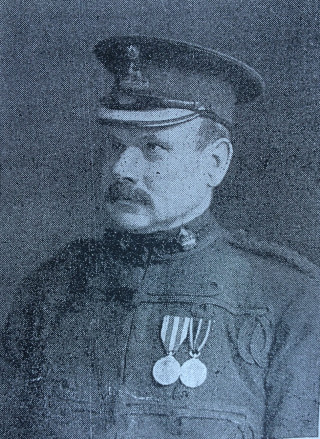Wood, William
The 'Father' of the Hertfordshire Constabulary
By ANDY WISEMAN
William Wood was born into a farming community at Barnside, Udney, Aberdeenshire, Scotland in 1859. In 1880 he joined Surrey police and was posted to Reigate. Having served there for four years, he transferred to the Hertford Borough Police where he held the rank of Sergeant. When the Hertford Borough Police was absorbed into the Hertfordshire Constabulary in 1889, Wood was posted to Buntingford and promoted to Inspector. He was then moved to Ware and promoted to Superintendent. Having been the officer in charge of Ware for three years, Wood was selected for the coveted role of Superintendent at Watford (King Street). Having taken up this role in 1898, Wood remained there for an impressive 22 years.
During his time at Watford, Wood was credited with personally solving three murders. The most notable was that of Caroline Ansell, an inmate at the Leavesden asylum. In March 1899, Ansell received a package from the outside world, containing a tempting cake. She subsequently fell ill and died in the asylum’s infirmary on 14th March. The post mortem which followed concluded that she had died as a result of ingesting phosphorus. It was quickly realised that the most likely source of the poison was the mysterious cake which had arrived a few days earlier and the police at Watford were notified. Upon commencing the investigation, Wood immediately ordered a search of the asylum’s bins, in the faint hope that the cake’s wrapper might still be on the premises. Miraculously, the packaging, complete with its postmark and hand written address was located and eventually traced back to Ansell’s sister, Mary. Despite protesting her innocence, Mary was tried and convicted of Caroline’s murder and hanged at St Albans prison on 18th July 1899. She was the last female to be executed in Hertfordshire.
In 1911 Wood succeeded John Reynolds as Deputy Chief Constable, a role held in tandem with that of Superintendent at Watford. When the Chief Constable, Alfred Letchworth Law, was recalled to the army at the outbreak of World War 1, Wood stepped up to the role of Acting Chief Constable and performed his duties well. So much so, that when the war ended he was awarded an O.B.E. Wood’s gratifying performance had also been noticed by the Home Office, who invited him to take on the role of Chief Constable of the St Albans City Police force, temporarily, until a permanent replacement could be found. Wood accepted and was seconded to St Albans for the duration of June 1916.
In 1917, Wood was awarded the King’s Police Medal for his auspicious dedication to the police service. His sheer length of service thus far, namely 37 years, hadn’t gone unnoticed and henceforth he was affectionately known as the “Father” of the Hertfordshire Constabulary; not least due to the fact that he was the only Hertfordshire officer still in service from 1884. Having held the office of Constable for forty years, Wood eventually retired in 1920 and took up residence at 16, Whippendell Road, Watford. On 10th August 1925, having recently returned from a trip to his native Scotland, Wood fell ill and was taken to hospital. He was subsequently transferred to Guys Hospital, London and died on 12th August aged 66.










Add your comment about this page